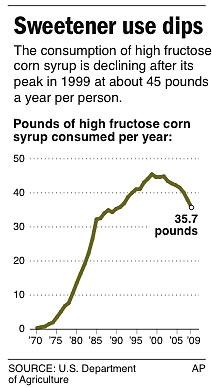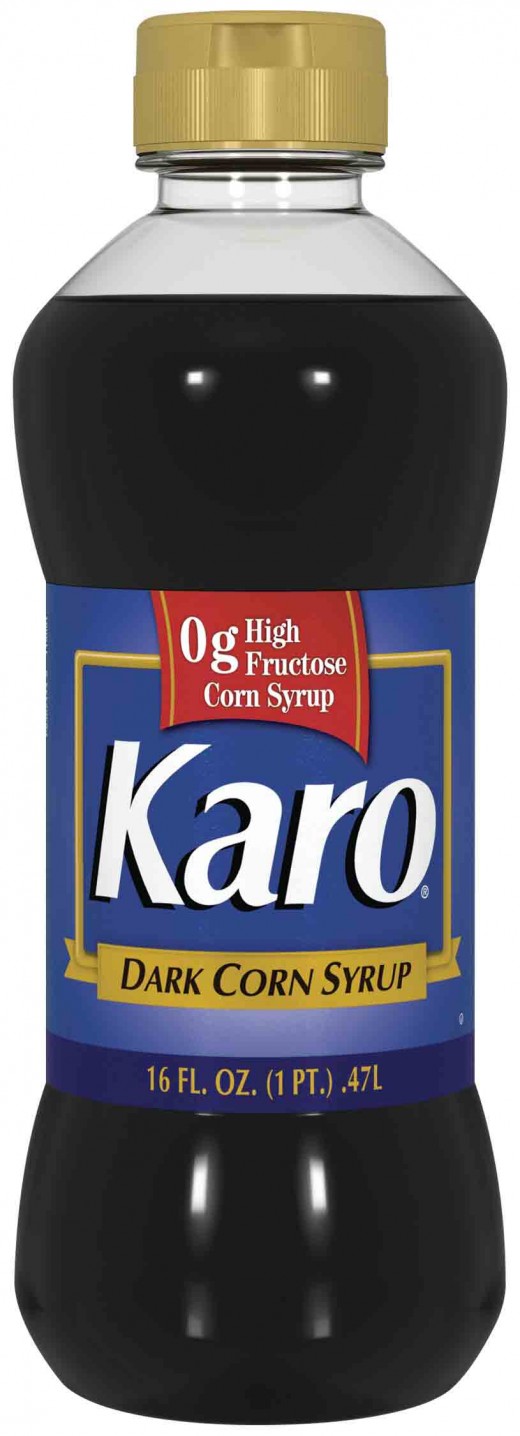High Fructose Corn Syrup: What's All the Controversy?
High fructose corn syrup...what can possibly be wrong with a natural sweetener? Your mother and grandmother likely used Karo corn syrup for baking--and perhaps you do too. Is this product something to be avoided?
There's been controversy over the use of high fructose corn syrup (HFCS) as an added sweetener to products such as soda pop, flavored fruit juices and many processed foods, especially with the growing epidemic of obesity in the United States. At least part of the controversy is due to the fact that high fructose corn syrup is the leading used sweetener in processed foods and beverages. Not everyone is aware that this ingredient is a sugar, so it may be overlooked by those reading labels and wanting to reduce their sugar intake.

High Fructose Corn Syrup Scientific Evidence
Some studies have suggested that high fructose corn syrup may disable the enzyme leptin. Leptin signals the brain that the stomach is full. Studies done on rats show that every single rat that was given high doses of HFCS gained weight, something that did not happen when rats were fed a high fat diet--some gained weight, while others did not. Still another study with rats, some who were fed table sugar and some HFCS, but the same total calories, resulted in the rats fed HFCS gaining a significant amount of weight over their table sugar fed counterparts.
Mayoclinic.com explains that scientific research on high fructose corn syrup is still evolving. It is too soon to prove positive or negative effects on humans consuming HFCS. But too much sugar--of any kind--can have a negative effect on the human body. HFCS and any sweetener should be used in moderation.
Read processed food labels carefully to learn what is in them. Even seemingly "innocent" foods such as processed marinara sauces contain high fructose corn syrup. Use fresh foods as much as possible in cooking. The closer a food is to its natural state, the less likely it is to have any sweetener added.
Related Hubs
- High Fructose Corn Syrup
- Politics and High-Fructose Corn Syrup
June 28, 2009High-Fructose Corn Syrup is becoming more and more common these days as it is appearing on the ingredient labels of more and more foods. A few people have questioned the possible health effects... - High fructose corn syrup is not the same as sugar
Table sugar (Sucrose) bonds one molecule of glucose and one molecule of fructose together -- 50%glucose and 50%fructose. Sugar is made from sugar cane or sugar beets. It is pure -- no weird chemicals,...
Fructose and Weight Gain
The results of a study titled "Fructose, Weight Gain and the Insulin Resistance Syndrome," published in the "American Journal of Clinical Nutrition" November 2002 relates that American consumption of fructose and high fructose corn syrup had increased by 26 percent from the period 1971 through 1997. Obesity rates in the United States have also climbed, reaching the epidemic proportions we are seeing currently.
The study's purpose was to determine the relationship between fructose and obesity as well as insulin resistance.
Insulin and leptin are two of the body's substances that regulate how the body metabolizes energy. Fructose bypasses these two substances. The insulin-producing cells of the pancreas do not recognize fructose as a sugar, so insulin is not produced in response to the presence of fructose in the digestive system. Leptin production for sugar metabolism is dependent on the presence of insulin. Since insulin is not produced to utilize fructose, leptin production is likewise reduced. This results in more sugar remaining in the bloodstream due to the unused fructose. Fructose then becomes metabolized to fat in the liver.
Animal studies demonstrate a clear relationship between fructose and the development of insulin resistance, glucose intolerance and hypertension, but that relationship has been less clear in human studies. More research will need to be done in this area before there is a clear relationship between fructose and weight gain and insulin resistance.
For now, the study authors point to data that suggests that high amounts of fructose in the diet lead to weight gain and metabolic effects such as insulin resistance. Science requires a high level of replicable research before it will report conclusively on any subject. In the meantime, examine these facts and conclusions and make a determination on the effects of fructose in your diet and its possible health consequences.

U.S. Government Ends Corn Subsidy
On December 31, 2011 the United States subsidy to corn growers for ethanol fuel made from the crop died a quiet death -- it simply expired. As it turns out, ethanol made from corn is no better for your car's engine than high fructose corn syrup is for yours.
How, you may ask, does that affect high fructose corn syrup?
The government subsidies provided billions of dollars to corn producers over the years; $6 billion alone in 2011, reports DailyFinance.com. These subsidies reduced the price of corn, making it attractive to food and beverage producers to use in their products. Over the 30 year span of the corn subsidy, high fructose corn syrup appeared in more and more foods and beverages.
American consumers began getting more savvy about choosing products with HFCS as an ingredient after 1999, when consumption of the substance reached an all-time high of 45 pounds of HFCS for each individual on average per year. The trend has been almost exclusively downward in high fructose corn syrup since that time.

Karo Syrup
Karo syrup, both the light--or white--and dark syrups are free of high fructose corn syrup. The products are corn syrup, but not HFCS. The company explains that during the 1970's high fructose corn syrup was added to the products, but due to consumer demand, HFCS was removed.
Sources
- How the (Finally Ended) Corn Ethanol Subsidy Made Us Fatter - DailyFinance
America's food chain has lately produced a bumper crop of scary news, but the worst food-related threat to our health was being caused by U.S. energy policy: Here's how the corn ethanol subsidy was making us fatter, and why to be glad that Congress f - Fructose Sets Table For Weight Gain Without Warning
Eating too much fructose can induce leptin resistance, a condition that can easily lead to becoming overweight when combined with a high-fat, high-calorie diet, according to a new study with rats. - High-fructose corn syrup: What are the health concerns? - MayoClinic.com
High-fructose corn syrup: It's prudent to limit all added sugars, not just HFCS. - High-fructose corn syrup prompts considerably more weight gain, researchers find
Researchers have demonstrated that all sweeteners are not equal when it comes to weight gain: Rats with access to high-fructose corn syrup gained significantly more weight than those with access to table sugar, even when their overall caloric intake - Karo Syrup - FAQ









